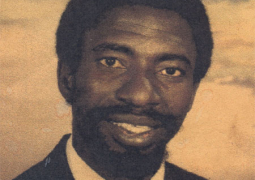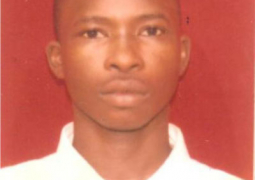Testifying, Jeng said he recognised the accused Yusupha Saidy, who was brought to their office on January 20 to obtain a cautionary statement from him.
He adduced that before obtaining the cautionary statement, he read the cautionary wordings to the accused in English and the accused recorded his own statement in English.
Asked by police prosecutor Sub-inspector Alpha Badgie, whether at the time of obtaining the statements they were the only two people present, officer Jeng responded in the negative, saying it was in the presence of an independent witness, one Babucarr Sonko.
According to the fraud officer, the accused thumb-printed his statement, but he did not sign it on the grounds that there was a portion where he should sign as recording officer but only wrote his name.
The witness added that he could recognise the said statement if shown to him. He then confirmed it as the one he obtained from the accused.
However, the said statement was not tendered until the next adjournment date, after the defence applied for the prosecution to supply them with all the necessary documents relating to the case, which included the cautionary statement.
The defence argued that it is the constitutional right of the accused to know the necessary documents that are to be used by the prosecution during the trial.
Barrister Tambadou contended that it is part of the Criminal Procedure Code to be well prepared for defence as equally stipulated in the constitution, citing relevant sections of the constitution to support his points of contention.
He argued that in a criminal matter there is consideration of the likelihood of the accused interfering with the prosecution witnesses. “Now we are at the stage of the trial, and I urge the court to grant the application,” he said.
However, the police prosecutor objected to the application on the basis that “It is a court of summary jurisdiction and it is not compulsory for the prosecution to provide the documents to the defence”.
Prosecutor Badgie submitted that giving all the statements and materials the prosecution intended to use would tantamount to giving licence to the accused to interfere with the prosecution’s witnesses.
The trial magistrate then ruled and ordered the prosecution to furnish the defence with the necessary documents they intended to use during the trial, in order to enable the defence to prepare for their defence.
Hearing resumes on February 22.
It would be recalled that the accused, Yusupha Saidy, was alleged to have some time in April 2015 in Banjul and diverse places in The Gambia, with intent to defraud, jointly conspired with Mr Watara, an Ivorian national, Mr Basir, a South African national, and Seedy Ahmed, a Senegalese national (all at large) and obtained from one Omar FarukDeniz 180,000 Euros for the purpose of transportation and customs clearance.
The prosecutors also accused Yusupha Saidy, along with Mr Watara, Mr Basir and Seedy Ahmed, that in April 2015 in Banjul and diverse places in The Gambia, with intent to defraud, jointly obtained 180,000 Euros, for the transportation and customs clearance of 100 metal boxes containing US$15 million, 10 tonnes of gold, some diamonds and portraits from one Omar FarukDeniz, on the pretext of clearing and transporting goods for him, knowing same to be false.
He denied any wrongdoing.




